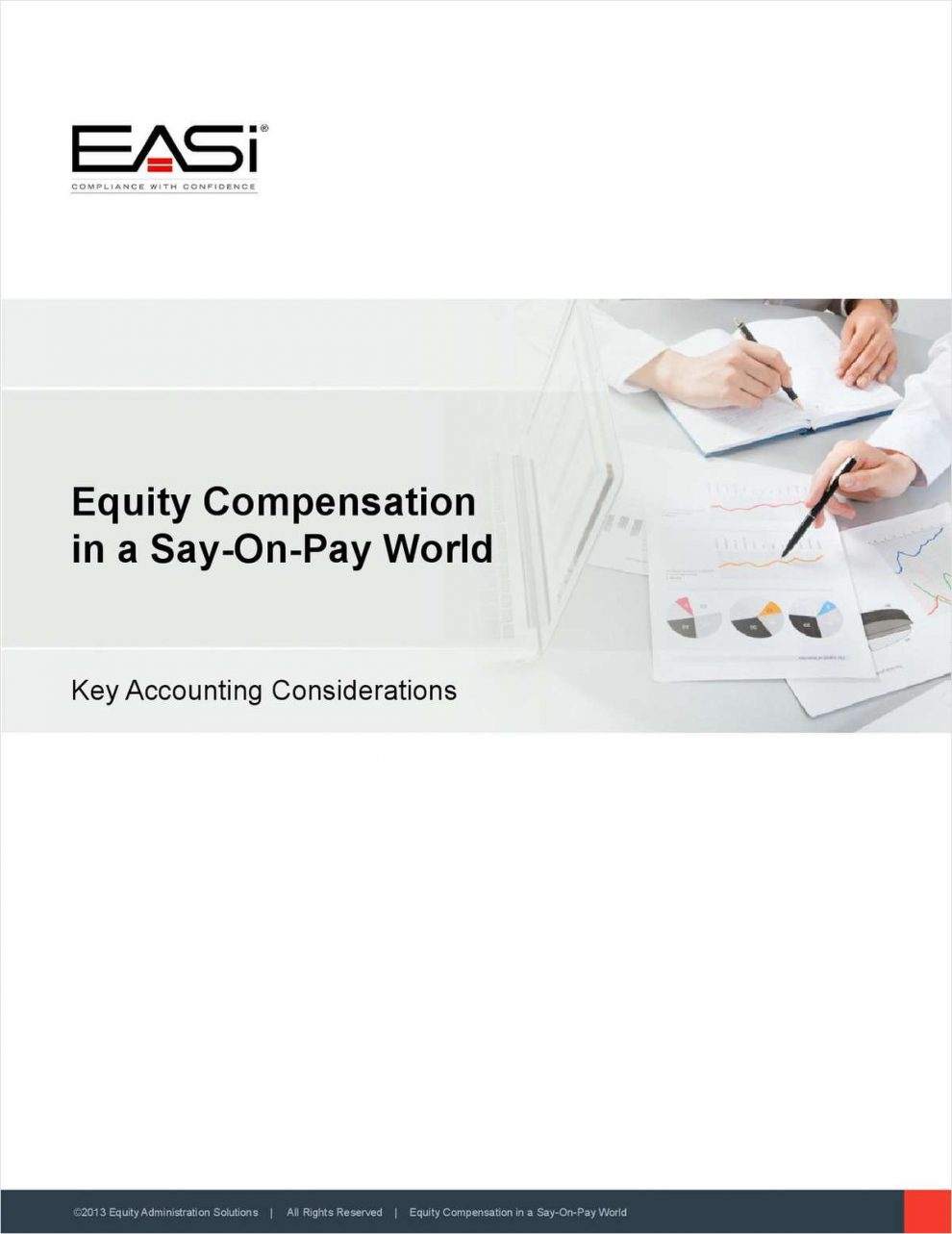Key Accounting Considerations
In 2010, the Dodd-Frank Wall Street Reform and Consumer Protection Act gave shareholders a non-binding vote on executive compensation – the so-called “say-on-pay” provision – representing a significant extension of traditional corporate governance. Investors are now demanding greater connection between executive pay and company performance, as well as more detailed disclosures related to executive compensation programs.
In this new landscape, finance and accounting executives, as well as stock plan administrators, must understand the different ways that equity compensation can be tied to company performance as well as the accounting implications of different equity-based pay-for-performance vehicles. This paper provides a primer in the key accounting implications of these vehicles that shareholders are demanding to see. Download the paper to learn:
- Accounting differences between performance stock and performance units
- How to handle accrued and life-to-date expenses
- The particular challenges of market-based vesting
- When to include multiplier shares in the EPS calculation
- Accounting for implicit and derived periods









